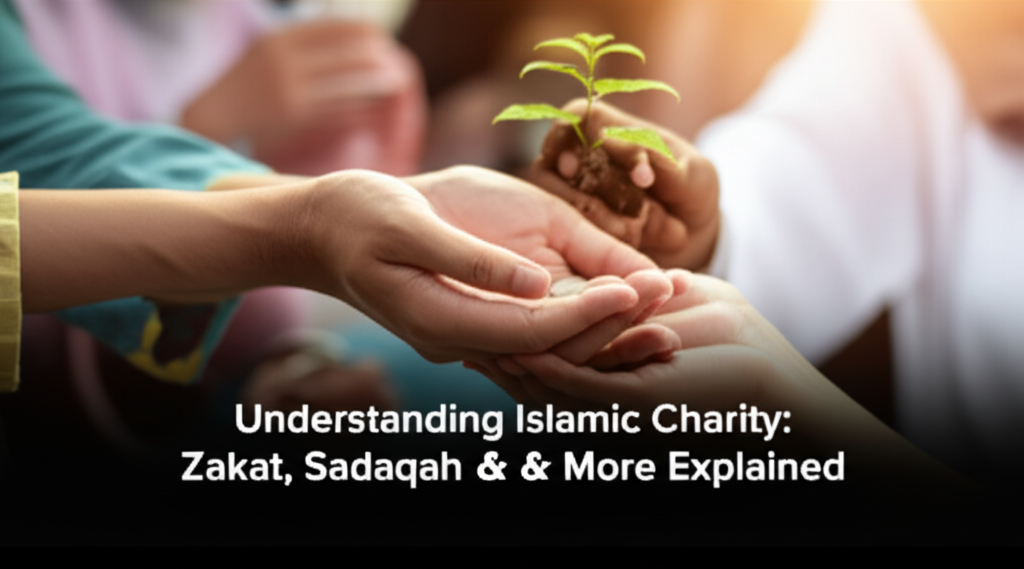Charity is a cornerstone of Islamic faith, embodying compassion, generosity, and social justice. This comprehensive guide explores the different types of Islamic charity, helping Muslims and others understand how to give generously and meaningfully within the framework of Islam. Whether you are new to Islamic charitable practices or seeking to deepen your knowledge, this article offers practical insights, examples, and actionable tips to maximize the spiritual and social impact of your giving.
Introduction to Islamic Charity
In Islam, charity is not merely an act of kindness but a religious obligation and a means to purify wealth and soul. The Quran and Hadith emphasize charity as a fundamental pillar of a righteous life. Islamic charity encompasses various forms, each with distinct rules, purposes, and rewards. These include Zakat, Sadaqah, Waqf, and other specialized forms such as Zakat al-Fitr and Kaffara.
Understanding these different types helps believers fulfill their religious duties effectively, contributing to individual spiritual growth and broader community welfare.
Main Types of Islamic Charity
Zakat: The Obligatory Alms
Zakat is one of the Five Pillars of Islam, making it an obligatory form of charity for all eligible Muslims. It requires giving a fixed percentage (usually 2.5%) of accumulated wealth annually to specified categories of recipients, including the poor, orphans, and those in debt.
- Purpose: To redistribute wealth fairly and alleviate poverty.
- Recipients: The Quran specifies eight categories, including the needy, the poor, those employed to collect Zakat, and others.
- Example: A Muslim who has savings exceeding the Nisab threshold for one lunar year must calculate and give 2.5% of that wealth as Zakat.
Sadaqah: Voluntary Charity
Sadaqah is voluntary charity given at any time, in any amount, and in many forms beyond money, such as food, clothing, or even a kind gesture. It is highly encouraged but not compulsory.
This form of charity reflects the spirit of generosity beyond obligation and can be given to anyone, Muslim or non-Muslim.
Forms of Sadaqah
- Monetary donations to the poor or charitable projects.
- Providing food or clothing to those in need.
- Acts of kindness like helping someone or sharing beneficial knowledge.
- Even a simple smile or removing harmful objects from a path is considered Sadaqah.
Practical Tip:
Make Sadaqah a daily habit by setting aside a small amount or dedicating time to help others. Remember, no act is too small to be rewarded.
Sadaqah Jariyah: The Ongoing Charity
Sadaqah Jariyah refers to continuous charity that benefits people over a long period or even after the donor’s death. It includes projects or actions that have lasting positive effects.
- Examples include digging wells, planting trees, building mosques, schools, or hospitals.
- Donors receive ongoing rewards as long as people benefit from their charity.
Practical Tip:
Consider contributing to community infrastructure or educational projects to create lasting impact.
Waqf: Charitable Endowment
Waqf is a form of endowment where an asset (land, building, money) is dedicated permanently for charitable or religious purposes. The principal asset remains intact, while income or benefits generated support the designated causes.
- Waqf can fund mosques, schools, hospitals, orphanages, or social welfare programs.
- It is a sustainable charity, often managed by trustees to ensure longevity.
- It can be established during one’s lifetime or bequeathed in a will.
Example:
A person might donate a piece of land as Waqf, where the land itself cannot be sold, but rental income from it supports a local school indefinitely.
Zakat al-Fitr: Charity at Ramadan’s End
Zakat al-Fitr is a special charity given by Muslims before the Eid al-Fitr prayer marking the end of Ramadan fasting. It ensures that the needy can also celebrate the festival with sufficient food.
- It is obligatory on every Muslim who possesses surplus food or wealth on Eid day.
- The amount is typically the value of staple food items like wheat or rice per person.
Kaffara: Charity for Expiation
Kaffara is a form of charity given as atonement for certain specific violations of Islamic law, such as breaking a fast or unintentional wrongdoing. It usually involves acts of charity or feeding the needy.
Why Giving Generously Matters in Islam
Islam teaches that charity is not only a means to help others but also a path to purify one’s wealth and soul. The Prophet Muhammad (PBUH) said, “Charity extinguishes sin as water extinguishes fire.” Charity fosters empathy, social cohesion, and spiritual growth.
Giving generously:
- Reduces inequality and supports vulnerable populations.
- Strengthens community bonds.
- Earns divine blessings and rewards both in this life and the hereafter.
Practical Tips for Giving Generously and Wisely
- Understand your obligations: Calculate and pay Zakat accurately and on time.
- Incorporate Sadaqah regularly: Set a routine for voluntary giving, no matter how small.
- Invest in Sadaqah Jariyah: Support projects with lasting impact, like schools or water wells.
- Consider Waqf for sustainability: If you own property or assets, explore establishing a Waqf trust.
- Give with intention and sincerity: Ensure your charity is done purely for Allah’s pleasure, not for recognition.
- Support local and global causes: Charity can be directed to both local community needs and international relief efforts.
- Educate yourself and others: Learn about the various types of charity and share this knowledge to encourage community participation.
Conclusion
Understanding the different types of Islamic charity empowers believers to fulfill their religious duties with generosity and wisdom. From obligatory Zakat to voluntary Sadaqah, from sustainable Waqf to the timely Zakat al-Fitr, each form has a unique role in promoting social justice and spiritual growth.
By giving generously and thoughtfully, Muslims not only help uplift those in need but also cultivate a deeper connection with their faith, realizing the profound blessings that come from sincere charity.

